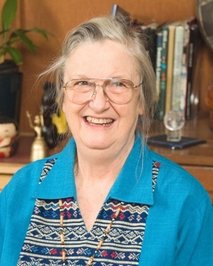

STOCKHOLM – Americans Elinor Ostrom and Oliver Williamson won the Nobel economics prize on Monday for their work in economic governance.
Ostrom was the first woman to win the prize since it was founded in 1968, and the fifth woman to win a Nobel award this year — a Nobel record.
The Royal Swedish Academy of Sciences cited Ostrom “for her analysis of economic governance,” saying her work had demonstrated how common property can be successfully managed by groups using it.
Williamson, the academy said, developed a theory where business firms serve as structures for conflict resolution.
“Over the last three decades, these seminal contributions have advanced economic governance research from the fringe to the forefront of scientific attention,” the academy said.
The economics prize was the last Nobel award to be announced this year. It's not one of the original Nobel Prizes, but was created by the Swedish central bank in Alfred Nobel's memory.
Phi Beta Iota: The Nobel gang got this one right. What the media is not stating with enough emphasis is that she is a pioneer in collective governance of common resources. Below are direct links to some of her notable works.
Governing the Commons: The Evolution of Institutions for Collective Action Ostrom, Elinor, Cambridge University Press, 1990
Institutional Incentives and Sustainable Development: Infrastructure Policies in Perspective Ostrom, Elinor, and Schroeder, Larry, and Wynne, Susan, Oxford: Westview Press, 1993
Rules, Games, and Common Pool Resources Ostrom, Elinor, and Gardner, Roy, and Walker, James, Editors, Ann Arbor, University of Michigan Press, 1994
with Crawford, Sue E. S., “A Grammar of Institutions.” American Political Science Review 89, no.3 (September 1995): 582–600.
A Behavioral Approach to the Rational Choice Theory of Collective Action: Presidential Address, American Political Science Association, 1997. Ostrom, Elinor, The American Political Science Review 92(1): 1-22. 1998
Trust and Reciprocity: Interdisciplinary Lessons for Experimental Research, Volume VI in the Russell Sage Foundation Series on Trust, Elinor Ostrom and James Walker, Editors, Russell Sage Foundation, 2003
Understanding Institutional Diversity Ostrom, Elinor, Princeton, Princeton University Press. 2005.
Understanding Knowledge as a Commons: From Theory to Practice Ostrom, Elinor and Hess, Charlotte, Editors, The MIT Press, Cambridge, Massachusetts, 2006
“Analyzing Collective Action,” paper for International Association of Agricultural Economists, Beijing, China 12 August 2009



